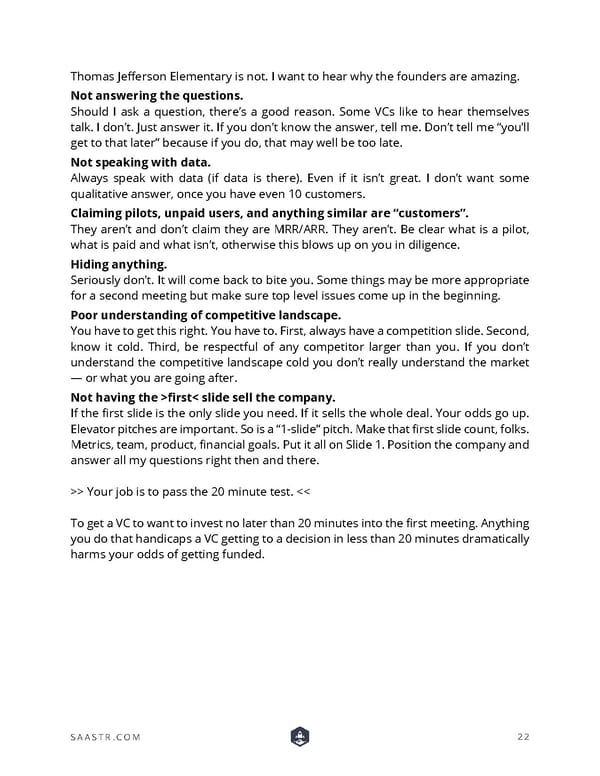Thomas Jefferson Elementary is not. I want to hear why the founders are amazing. Not answering the questions. Should I ask a question, there’s a good reason. Some VCs like to hear themselves talk. I don’t. Just answer it. If you don’t know the answer, tell me. Don’t tell me “you’ll get to that later” because if you do, that may well be too late. Not speaking with data. Always speak with data (if data is there). Even if it isn’t great. I don’t want some qualitative answer, once you have even 10 customers. Claiming pilots, unpaid users, and anything similar are “customers”. They aren’t and don’t claim they are MRR/ARR. They aren’t. Be clear what is a pilot, what is paid and what isn’t, otherwise this blows up on you in diligence. Hiding anything. Seriously don’t. It will come back to bite you. Some things may be more appropriate for a second meeting but make sure top level issues come up in the beginning. Poor understanding of competitive landscape. You have to get this right. You have to. First, always have a competition slide. Second, know it cold. Third, be respectful of any competitor larger than you. If you don’t understand the competitive landscape cold you don’t really understand the market — or what you are going after. Not having the >first< slide sell the company. If the first slide is the only slide you need. If it sells the whole deal. Your odds go up. Elevator pitches are important. So is a “1-slide” pitch. Make that first slide count, folks. Metrics, team, product, financial goals. Put it all on Slide 1. Position the company and answer all my questions right then and there. >> Your job is to pass the 20 minute test. << To get a VC to want to invest no later than 20 minutes into the first meeting. Anything you do that handicaps a VC getting to a decision in less than 20 minutes dramatically harms your odds of getting funded. SAASTR.COM 22
 The Ultimate Guide For Scaling Sales & Raising Capital Page 25 Page 27
The Ultimate Guide For Scaling Sales & Raising Capital Page 25 Page 27